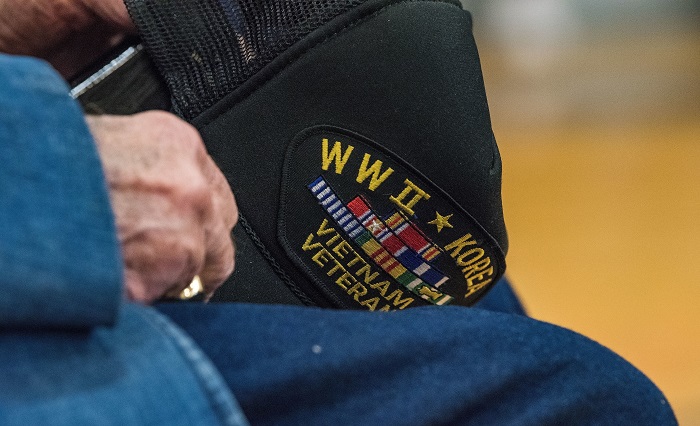VA errors in benefits payouts down, but still total more than $1.3B

Veterans Affairs staffers made more than $1.3 billion in benefits payment errors last year. Watchdog officials said that’s actually good news.
“I think they’re heading in the right direction,” Brent Arronte, the department’s deputy assistant inspector general, told lawmakers Wednesday. “They are correcting effective date tool builders. They are consolidating their policies and procedures. They’re working this in the right way.”
The benefits mistakes — both overpayments and underpayments — represent less than 1% of the more than $161 billion in payouts processed by VA in 2024. According to VA data, improper and unknown payments are actually down nearly 85% since fiscal 2018, thanks to new processing procedures and tracking.
Still, Arronte and lawmakers noted during a House Veterans’ Affairs Committee oversight hearing Wednesday that the totals do represent a significant financial headache for the department and taxpayers, especially at a time when White House officials are emphasizing efficiency and waste reduction in the federal bureaucracy.
Collins, Dems spar over whether VA needs key fixes or full overhaul
“We’re looking at massive programs here, complicated, imperfect programs,” said Rep. Morgan McGarvey, D-Ky. “I know we need to work to make them better. We have to push for real efficiencies and improvements, and we absolutely need to make sure strong payment controls are in place.”
Nina Tann, executive director of compensation service at the Veterans Benefits Administration, said officials hope to push the improper benefits figure down even further in the coming years with increased automation of department systems.
But she acknowledged that some mistakes are difficult to avoid because of the size and scope of the department’s benefits responsibilities.
A significant portion of the errors come from delayed reports of beneficiary status, either through death, divorce or other life changes. If those are not promptly reported to VA, checks will continue to be sent out even if an individual is no longer eligible for all of the funds.
Department officials said problems with pension payouts in particular are more likely to be overpayments than underpayments. But lawmakers said those mistakes can be just as harmful to veterans’ finances.
“The worst thing you can do is overpay a veteran and then tell them they have to give it back,” said Rep. Morgan Luttrell, R-Texas, chairman of the committee’s panel on disability assistance.
“Many of our veterans live paycheck to paycheck. If you’re trying to take something back from them, something the United States government gave to them, that’s our fault. We have to fix that problem.”
VA officials do have the authority to waive repayments in certain circumstances, and Tann said officials are still working to finalize new rules regarding those procedures. The department currently recovers about half of its overpayment mistakes, according to department data.
But she said VA leaders are also working to improve communication with veterans on how to update their records to ensure that payment mistakes don’t occur in the first place.
Arronte said establishing the effective date of benefits remains a challenge for VA processors, especially in cases involving toxic exposure claims, which have only become eligible for disability benefits in the last few years.
He said more work needs to be done in that area to ensure that overpayments and underpayments are kept to a minimum.
Lutrell acknowledged the challenge of correctly accounting for vast numbers of benefits checks, but noted that VA officials have been hesitant in asking for new help or authorities to deal with the problem in recent years.
“We must ensure that VA is a responsible steward of the taxpayers’ investment,” he said. “This means paying every veteran the correct amount of benefits they have earned, the first time.”





